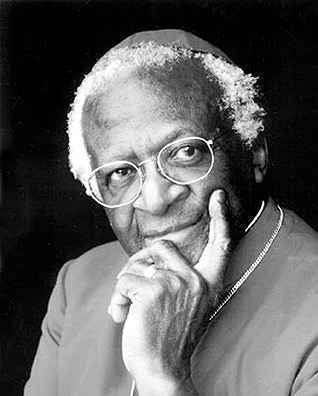
Archbishop Desmond Tutu is a South African Anglican cleric who became one of the central leaders of the global peace movement. An outspoken defender of human rights and campaigner for the oppressed, Desmond Tutu’s eloquent advocacy and brave leadership lead to the end of South African apartheid in 1993 and the installation of Nelson Mandela as the nation’s first black President. The Archbishop has dedicated his life to reshaping conversations about peace, equality and forgiveness. In 1984, Tutu earned the Nobel Peace Prize for his efforts as a global peace maker and now devotes his time with the Desmond and Leah Tutu Legacy Foundation and the Desmond Tutu Peace Foundation to teaching youth the powerful role and voice they play in creating a more compassionate and peaceful world.
Since the demise of apartheid, Desmond Tutu has been active in the defense of human rights and uses his high profile to campaign for the oppressed. He has campaigned to fight HIV/AIDS, tuberculosis, poverty,racism, sexism, the imprisonment of Chelsea Manning, homophobia and transphobia. He received the Nobel Peace Prizein 1984; the Albert Schweitzer Prize for Humanitarianism in 1986; the Pacem in Terris Award in 1987; the Sydney Peace Prize in 1999; the Gandhi Peace Prize in 2007; and the Presidential Medal of Freedom in 2009. He has also authored several books including the Book of Forgiving which he co-wrote with his daughter, the Reverend Mpho Tutu, and the forthcoming Book of Joy which he is co-authoring with his friend the Dalai Lama.








